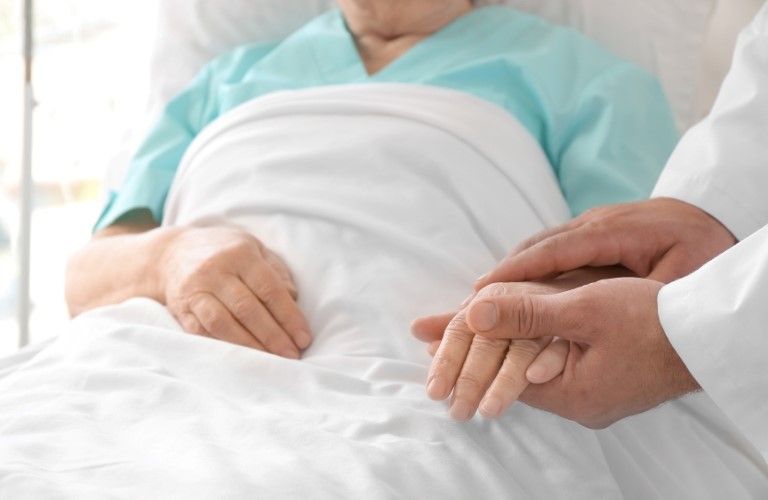Managing pain and discomfort after gastrointestinal surgery is an important part of the recovery process. Gastrointestinal surgery can be a major operation that may cause pain and discomfort in the abdomen and other parts of the body. Here are some tips for managing pain and discomfort after gastrointestinal surgery as highlighted by Dr. Dhaval Mangukiya, one of the most experienced Gastro Surgeon In Surat:
- Take pain medication as directed: Your surgeon will prescribe pain medication to help manage your pain after surgery. It’s important to take the medication as directed to ensure that you are managing your pain effectively. Do not wait until the pain becomes severe before taking the medication.
- Use ice packs: Ice packs can help reduce swelling and pain in the abdomen. You can use ice packs for 20 minutes at a time, several times a day, as directed by your surgeon.
- Get up and move around: While it’s important to get plenty of rest after surgery, it’s also important to get up and move around to prevent complications such as blood clots. Walking and light stretching can also help reduce pain and discomfort in the abdomen.
- Use relaxation techniques: Relaxation techniques such as deep breathing, meditation, and visualization can help reduce stress and anxiety, which can in turn reduce pain and discomfort. Your healthcare provider can teach you these techniques or refer you to a specialist who can.
- Use heat therapy: Heat therapy, such as a heating pad or warm towel, can help reduce pain and discomfort in the abdomen. It’s important to use caution with heat therapy, however, and not to use it for extended periods of time.
- Eat a healthy diet: Eating a healthy, balanced diet can help support healing and reduce discomfort in the abdomen. Avoid foods that are difficult to digest or that may cause gas, bloating, or other digestive symptoms.
- Stay hydrated: Drinking plenty of fluids can help keep your digestive system functioning properly and may also help reduce pain and discomfort. It’s important to follow an expert stomach doctor’s recommendations for fluid intake after surgery.
- Wear loose clothing: Wearing loose, comfortable clothing can help reduce pressure on the abdomen and may also help reduce pain and discomfort.
- Get plenty of rest: Getting enough rest is important for healing after surgery. Make sure to get plenty of sleep and take time to rest during the day as needed.
Follow your gastrointestinal doctor’s instructions: Follow your doctor’s instructions for wound care, activity restrictions, and other post-operative care. If you have any questions or concerns, be sure to speak with a stomach specialist in Surat.
What helps with pain after abdominal surgery?
Managing pain after abdominal surgery involves taking pain medication as directed, using ice and heat therapy, getting up and moving around, using relaxation techniques, eating a healthy diet, staying hydrated, wearing loose clothing, getting plenty of rest, and following your doctor’s instructions. By following these tips, you can help manage pain after abdominal surgery and support a smooth recovery.
How long does discomfort last after surgery?
The duration and intensity of discomfort after stomach surgery can vary depending on the type of surgery, individual healing factors, and the person’s pain tolerance. Generally, patients can expect to experience pain and discomfort for several weeks after surgery, with peak pain occurring in the first few days.
What pain is normal after abdominal surgery?
Pain is a normal and expected part of the recovery process following abdominal surgery. The type and level of pain can vary depending on the specific surgery and individual factors, such as pain tolerance and the overall health of the patient.
How do you deal with uncontrollable stomach pain?
Uncontrollable stomach pain can be a concerning and uncomfortable experience. If you are experiencing severe or persistent stomach pain after surgery, it is important to seek medical attention right away, as this may indicate a serious complication or infection.
Here are some general tips for managing stomach pain:
- Follow your surgeon’s post-operative instructions: This may include taking any prescribed pain medications as directed, adjusting your diet or activity level, or using certain techniques to manage pain.
- Use heat or cold therapy: Applying a heat or cold pack to the affected area can help to reduce pain and swelling.
- Practice relaxation techniques: Stress and tension can make pain worse, so practicing relaxation techniques such as deep breathing, meditation, or yoga may help to reduce the severity of the pain.
- Try over-the-counter medications: Over-the-counter pain relievers such as acetaminophen or ibuprofen may be effective in managing mild to moderate stomach pain, but be sure to check with your surgeon before taking any new medications.
- Stay hydrated: Dehydration can exacerbate pain and discomfort, so be sure to drink plenty of fluids, such as water, clear broth, or sports drinks.
If the pain is severe or uncontrolled despite these measures, it is important to seek medical attention as soon as possible. Your stomach surgeon in Surat may recommend additional pain management techniques, such as stronger medications or nerve blocks, or may need to investigate the cause of the pain to determine the best course of treatment.

